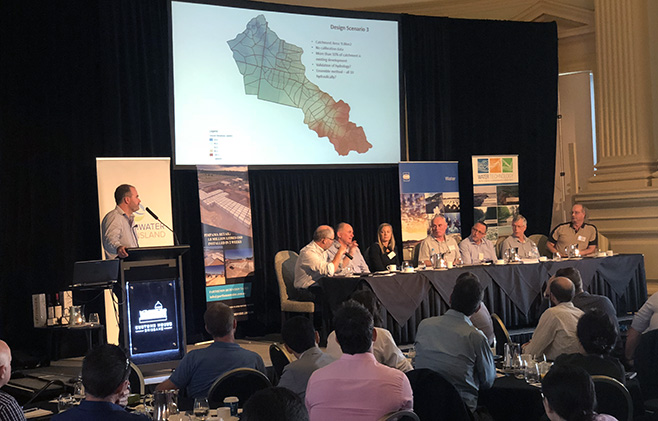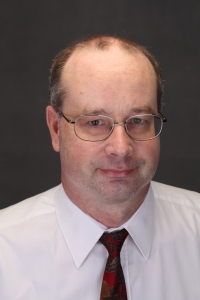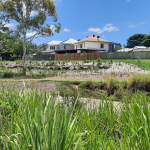Upcoming Events

River Basin Management Society invite you to attend:
A Discussion on the 2016 Healthy Waterways and Catchments Report Card
“Please join us for a conversation with Dr Emily Saeck, Senior Scientist with Health Waterways and Catchments, to discuss the results of the 2016 Report Card. The Report Card provides an annual assessment of the pressures facing our waterways, their current environmental condition (A-F grade), and the level of social and economic benefit the waterways provide to local communities (1-5 star rating). This is the second year of the newly evolved Report Card, which provides a deeper understanding of the current pressures, benefits we receive, and importantly what needs to be done to protect and improve our waterways.
Please visit the Healthy Waterways and Catchments website to view the Report Card results after the launch on 16 November: http://healthywaterways.org/report-card”
To Register your attendance – click here

The SQ Management Committee invites all members, and potential members, to attend the 2016 End of Year Celebration event. The event is an opportunity for members to provide feedback and ideas to the committee on 2017 event topics/speakers and new initiatives, and to express your interest in participating in a sub-committee next year.
The program for the evening will also include a short presentation from Mike Smith about “When Government Says “No” at Christmas”. Mike Smith is a National Director of Stormwater Australia, and the founder of Ethical Consulting Services, a consultancy all about communications – lobbying, government relations, campaigning, marketing and governance. He is a member of the Australian Institute of Company Directors, and has been a Company Secretary, and Chief Executive. He’s worked at UQ as a lecturer/course coordinator on government policy-making; he’s also lectured on government relations, governance, board effectiveness, elections and campaigning, as well as developing and delivering customised training courses for business, community organisations, university students, and to professional conferences. His main recreational interest is elections, and he’s been a volunteer in five US Presidential campaigns, as well as managing and mentoring many Australian campaigns and candidates.
If you are able to join us on the 13th, please RSVP via return email by COB 6 December 2016 so as we know numbers for catering.
The Management Committee looks forward to meeting many members for an enjoyable evening.
Brad Dalrymple
President
Stormwater Queensland
Sponsored by;

Time: 8.30am for a 9.00am start and finishing with lunch from 12.30pm
The commencement of the new Planning Act in mid-2017 has been a driver for the Department of Infrastructure, Local Government & Planning (DILGP) to review how State interests are expressed in the planning system. In November 2016, DILGP released consultation drafts of theState Planning Policy (SPP), the State Development Assessment Provisions and the Planning Regulation. These drafts can be downloaded from this website. The draft SPP includes some important changes to the State interest – water quality.
The changes associated with the policy are likely to have some noteworthy implications for urban development, communities and the environment.
Stormwater Queensland is hosting a forum to assist in understanding how the Draft SPP proposes to change regulatory requirements for stormwater quality management.
The event is recommended for those involved in urban stormwater planning, policy or development. Submissions on the draft SPP close 10 February 2017 so the Forum is also recommended for any person or organisation considering making a submission on the water quality aspects of the policy.
An expert panel from a broad cross section of the industry has been convened for this event to provide different perspectives on the policy. The panel will include a range of speakers including:

Sponsored by;
Time: 8.30am for a 9.00am start (concluding with lunch from 12.30pm)
As part of any development approval, local governments request developers to meet stringent stormwater quality requirements before allowing stormwater to discharge to local receiving waterways or adjoining public stormwater infrastructure. For over a decade now, these requirements have been met by use of various types of proprietary and non-proprietary stormwater treatment devices or systems, including Gross Pollutant Traps, Oil and Silt Arresters, Sediment Fore-Bays, Trash Racks, Litter Baskets, Sediment Ponds, Swales and Bio-Retention Systems, etc. All of these systems need maintenance in order to consistently meet the quality requirements of their design. When reflecting on our efforts in stormwater quality improvement over the last decade, a number of important questions arise, including:
- Are these systems, both public and privately owned, being maintained according to manufacturer specifications and/or design guidelines?
- Who is responsible for maintaining these systems? How is local government responsible for publicly owned assets? What obligations do private asset owners have to maintain these assets?
- What regulatory or incentive frameworks are currently in place to ensure these assets are maintained? What regulatory or incentive frameworks could be considered in the future?
- How does local government keep a track of these assets? Do they know where they are located? How much data or information do they have?
- How do they use this data or information? How do they store it? Who is responsible for it?
- To what extent are systems owned by private entities, other than local governments, being maintained?
Stormwater Queensland is hosting a forum to assist in understanding the management situation for public and privately owned systems and to find answers to the above. The event is recommended for those involved in urban stormwater planning, policy or development, asset management and maintenance. An expert panel from a broad cross section of the industry is being convened for this event to provide different perspectives on this topic.
An expert panel from a broad cross section of the industry has been convened for this event to provide different perspectives on this topic including;
- Claire McAsh – Senior Environmental Engineer, City of Gold Coast
- Russell Cadman – WSUD Compliance Officer, Blacktown City Council, NSW
- Aaron Marmara – Operations Supervisor, Cleanaway
- Mark Bibby – General Manager, Regen Australia
- Jack Mullaly – Crazed Founder, Ideanthro
There are some fantastic examples from the UK and other parts of the world that use a naturalistic approach to floodplain management. The question is, however, can these types of techniques be practically applied in SEQ? Given that the local climate and other components are vastly different to these areas, will these approaches be feasible and if so to what degree and how would they be best used?
Recent discussions within some organisations have pinned hopes on naturalistic floodplain management as “the answer” to several common issues, which makes it well worth considering. However, there are unresolved issues regarding the importance of revegetation weighed against the potential for increased flood levels upstream (and potential decreased flood levels downstream) also the quantification measurement and modelling of such approaches, climate, storage, practicality as well as the cost of implementation.
Key items that will be discussed include:
- Applying Natural Floodplain Management Techniques in Queensland. What is the likelihood for success?
- Lessons learned from the UK on Natural Floodplain Management. Application of natural techniques should as floodplain reengagement, revegetation, infiltration and temporary storage through leaky weirs etc.
- Discussion surrounding the future Bremer River Catchment Study and the opportunities for integrated water approaches
- Application of revegetation etc in Bremer/Lockyer systems and possible implications for the regional area.
- The power of using flood mitigation as a mechanism to get other benefits (water quality, bank stabilisation, more trees in the ground)
- Hurdles such as property resumptions, increasing flooding upstream whilst benefiting downstream property, lack of legislation power to enable greater community good and working with landowners on useable land.
- Previous case studies and a quick look at what Ipswich is looking at for a natural floodplain management pilot project
Stormwater Queensland is hosting a lunchtime presentation to facilitate a transfer of ideas and assist in understanding a natural floodplain management approach.
Phil Smith (Waterways Health Officer) and Adam Berry (Floodplain Management Engineer) from Ipswich City Council will be co-presenting and will provide time at the end for discussion/questions and answers.
Winter School
sponsored by;
Date: 9, 10 and 11 August 2017
Time: 8.30am – 5.00pm each day
Venue: GHD, Level 8, 145 Ann Street, Brisbane
Price: $450 (p/workshop, p/day) SQ members; $550 (p/workshop, p/day) non-members
Space is Limited! Register today
Every year, Stormwater Queensland is proud to hold its annual “Winter School”. What is Winter School you might ask? Well, for those of you who have attended previously, the Winter School is a fantastic chance for all to brush-up on their stormwater management skills and possibly learn a thing or two, including updates on new or revised industry methods and applications. You get to learn one-on-one with industry experts and network with others in various stormwater management disciplines at the same time.
This year we are holding three full-days of workshops. These workshops are:
● DAY 1 – HEC-RAS 2D
This one day workshop is designed for those looking to make their first step into the 2D modeling world, along with seasoned professionals looking for a refresh on up to date modern techniques.
Key aspects covered by the course:
- Introduction to HecRas
- Key input parameters for 2D modeling
- Modeling of real life case studies
This course will be run by Krey Price. Krey is a civil engineer and project manager with international experience in water resources. He is engaged with computational modeling, engineering design, and project management for flood mitigation, mine rehabilitation, river and wetland restoration, Stormwater management and catchment assessment projects.
● DAY 2 – ARR Workshop – Neil Collins and Martin Giles
This one day workshop is set to cover off on one of the biggest changes to the Stormwater Industry in 30 years – ARR 2016.
Key points that will be covered in this one day workshop.
Overview of ARR16
- Key changes 87 vs. 16
- How to put together a Stormwater design or flood study using ARR16 (key emphasis on the new temporal patterns and ensemble storms)
- Key focus on Chapter 9: Urban Development
This course will be run by Martin Giles. Martin has 28 years’ experience, specializing in hydraulic and environmental investigations. Modeling work undertaken by Martin has included complex floodplain systems and the application of dynamic modeling to urban Stormwater design.
● DAY 3 – Stream Management – Misko Ivezich
This one day workshop will take you down the journey of stream management (fluvial geomorphology). This course will give designers the information and experience required to make informed design decisions that will result in a positive environmental outcome
The key concepts covered by this course:
- Fundamentals of Fluvial Geomorphology (including case studies)
- Fundamentals on waterway management
- Real life case study discussion
This course will be run by Misko Ivezich. Misko is an environmental engineer with core interests and skills in the complex interactions between hydrology, hydraulics and fluvial geomorphology. Misko has strong geomorphic field assessment skills having inspected hundreds of waterways across eastern Australia.
Thanks to our host and sponsor we have been able to reduce the cost so to ensure you receive a valuable and rewarding participation.
Costs per workshop, per day are:
● $450 SQ Members (inc GST)
● $550 Non-Members (inc GST)
Discounts Apply
Book 2 days – $50 off first day
Book 3 days – $100 off first day

Date: 27th February 2018
Time: 9 – 11am with 8.30 registration
Location: Southport Community Centre – 6 Lawson Street, Southport
Presenters: Paul Ollett from HydraLinc Pty Ltd & Sophia Buchanan from Innovyze
Includes: Presentations, Q&A and light refreshments
Cost: $55 members | $95 non-members
Culverts come in all shapes and sizes and chances are you crossed one on your way to work this morning. We generally rely on computer software to assess and design them, but can you trust the answer the computer gives you? This workshop is designed to go back to first principles, giving practitioners the tools they need to check hydraulic model results by hand and give them confidence in their day to day work.
The workshop will provide an opportunity to network with industry peers and will cover the following:
- The energy equation & its application to culverts
- Flow conditions (Inlet and outlet control)
- Entry, barrel and exit Losses
- New blockage considerations from ARR16
- Fish Passage requirements
- Where to go for References and Technical Guides
- Benefits to using hydrographs over peak flows for culvert design
- Project example: culvert calculations by hand
- Q&A
SECURE YOUR SPOT AND REGISTER NOW BELOW.

The AR&R/QUDM workshop was a resounding success with plenty of robust discussion and commentary on the two new guidelines. Some of the key outcomes from the workshop were:
- Requests for detailed training once the AR&R Urban Chapter is released. Stormwater Qld has also committed to investigating more detailed training and helping guide the industry in implementation.
- An understanding that the Rational Method may still be applicable for small-scale developments combined with the 2016 IFD’s but as development size & complexity increases, so should the level of modelling. This should be a risk-based approach with the ultimate judgement being made by an RPEQ.
- Local authorities and consultants should note existing legislation/guidelines and changes to QUDM with regards to severe storm impact assessment and dam break analysis/emergency spillway design.
- Local authorities and consultants should note the update of QUDM on the lawful point of discharge which is now more reflective of common law.
- Most software is already developed to automatically include (through the Data Hub) most of the new AR&R16 changes.
- Improvements to and feedback on the Datahub are most welcome by the custodians and should be forwarded through to allow continuous improvement and progression.
- Further research and progress is being made on multiple components of AR&R16, particularly, refinement of the RFFE validation method.
- AR&R Book 9 draft will be released within the week. Comments and review are welcome by the book editors.
- There are still many areas that remain uncertain, but the previous methods have even greater uncertainty;
Stormwater Queensland has recorded these key outcomes and actions and will provide feedback to the AR&R & QUDM editors.
As highlighted during the workshop, the link to the Hydralinc Blockage Tool – Beta version is below. You are invited to test and provide feedback to Paul directly:
http://www.hydralinc.com/stuff/
ARR2016 Blockage Tool: ARR2016 Bk6Ch6 Blockage – BETA v01.xlsx
We trust that you found the workshop worthwhile and look forward to seeing you again.
Sponsors:

Panel members
The event expert panel will comprise:
Mark Babister
 Mark Babister FIEAust CPEng NER, is the Director at WMAwater and recent winner of Engineers Australia John Holland Civil Engineer of the Year 2017 award. He has also been involved in the publication of the ARR 2016, the 4th edition of ARR.
Mark Babister FIEAust CPEng NER, is the Director at WMAwater and recent winner of Engineers Australia John Holland Civil Engineer of the Year 2017 award. He has also been involved in the publication of the ARR 2016, the 4th edition of ARR.
Mark is a national leader in water engineering, specialising in flood estimation and floodplain management. He has over thirty years’ experience in water engineering studies, and has successfully led an extensive number of significant hydrologic, hydraulic, floodplain management, infrastructure and dam studies for a wide range of water managers and infrastructure owners.
Adam Broit
 Adam is a Civil Engineer with over 10 years’ experience working on civil infrastructure projects. Adam’s core experience covers hydrology and hydraulics and has a focus on water projects. His experience ranges from stormwater network design, detailed hydrologic and hydraulic modelling, covering small cross drainage infrastructure through to large scale catchment modelling and water balance modelling.
Adam is a Civil Engineer with over 10 years’ experience working on civil infrastructure projects. Adam’s core experience covers hydrology and hydraulics and has a focus on water projects. His experience ranges from stormwater network design, detailed hydrologic and hydraulic modelling, covering small cross drainage infrastructure through to large scale catchment modelling and water balance modelling.
Adam has had over 5 years’ experience working within the DA/OPW space and undertaking multiple urban stormwater management plans in South-East Queensland. He is currently working across a range of civil projects within the development and infrastructure space, ranging from overland flow path studies to flood mitigation works.
Sophia Buchanan
 Sophia has 10yrs experience specialising in hydrology and hydraulics. She has been the head training for XP Solutions and was instrumental in the implementation of ARR 2016 into Innovyze software.
Sophia has 10yrs experience specialising in hydrology and hydraulics. She has been the head training for XP Solutions and was instrumental in the implementation of ARR 2016 into Innovyze software.
Sophia has a demonstrated history of working in both the private and public sectors. Projects undertaken by Sophia include large scale urban drainage schemes, stormwater quality and quantity modelling, flood management and detailed design for flood mitigation works.
Don Carroll
 Don Carroll has over 30 years of experience in flood modelling and risk management throughout Australia and overseas. He has also worked extensively throughout South-East Asia in the areas of flood damage assessment, integrated disaster risk management, climate change adaptation, integrated basin management including institutional strengthening and flood risk vulnerability assessment. He is the author of the URBS model that is used extensively throughout Australia for flood forecasting and design incorporating the latest ARR 2016 guidelines.
Don Carroll has over 30 years of experience in flood modelling and risk management throughout Australia and overseas. He has also worked extensively throughout South-East Asia in the areas of flood damage assessment, integrated disaster risk management, climate change adaptation, integrated basin management including institutional strengthening and flood risk vulnerability assessment. He is the author of the URBS model that is used extensively throughout Australia for flood forecasting and design incorporating the latest ARR 2016 guidelines.
Peter Coombes
 Prof. Coombes has spent more than 30 years dedicated to the development of systems understanding of the urban, rural and natural water cycles with a view to finding optimum solutions for the sustainable use of ecosystem services, provision of infrastructure and urban planning. He has been involved in a wide range of projects, advised many clients and governments, providing strategic design, policy and economic advice to the satisfaction of governments and society. He is part of the ARR Editorial Team for Book 9 – Runoff in Urban Areas.
Prof. Coombes has spent more than 30 years dedicated to the development of systems understanding of the urban, rural and natural water cycles with a view to finding optimum solutions for the sustainable use of ecosystem services, provision of infrastructure and urban planning. He has been involved in a wide range of projects, advised many clients and governments, providing strategic design, policy and economic advice to the satisfaction of governments and society. He is part of the ARR Editorial Team for Book 9 – Runoff in Urban Areas.
Alister Daly
 Alister has more than 20 years’ experience in the water engineering industry throughout Australia and has worked extensively within the water resources, flooding and drainage sectors for Government and private sector clients across Australia. Alister has held technical and management positions in both large and small consultancies in the Water Resources and Flooding sectors and has been actively involved in all levels of engineering consultancy. He has worked extensively throughout Queensland, as well as throughout other regions throughout Australia (Victoria, Northern Territory, etc). Alister also has international AusAID experience as a water resources advisor in China. Alister has also worked on numerous hydrologic and hydraulic assessments for development proposals, flood mitigation designs and hydraulic structure designs for both private and government clients. Alister has also provided expert witness services in the Queensland Planning and Environment Court appeal process.
Alister has more than 20 years’ experience in the water engineering industry throughout Australia and has worked extensively within the water resources, flooding and drainage sectors for Government and private sector clients across Australia. Alister has held technical and management positions in both large and small consultancies in the Water Resources and Flooding sectors and has been actively involved in all levels of engineering consultancy. He has worked extensively throughout Queensland, as well as throughout other regions throughout Australia (Victoria, Northern Territory, etc). Alister also has international AusAID experience as a water resources advisor in China. Alister has also worked on numerous hydrologic and hydraulic assessments for development proposals, flood mitigation designs and hydraulic structure designs for both private and government clients. Alister has also provided expert witness services in the Queensland Planning and Environment Court appeal process.
David Simpson
 David is a Senior Civil and Environmental Engineer with 47 years of experience in civil, hydraulic and environmental engineering, including investigation, planning, design, construction and project management of development projects. His areas of expertise include creek stabilisation, integrated water cycle management, stormwater drainage, overland flow, water quality, water supply, sewerage, water treatment, wastewater treatment, industrial wastewater treatment, hydraulic services, subdivisions, hydro-electric schemes and expert witness services.
David is a Senior Civil and Environmental Engineer with 47 years of experience in civil, hydraulic and environmental engineering, including investigation, planning, design, construction and project management of development projects. His areas of expertise include creek stabilisation, integrated water cycle management, stormwater drainage, overland flow, water quality, water supply, sewerage, water treatment, wastewater treatment, industrial wastewater treatment, hydraulic services, subdivisions, hydro-electric schemes and expert witness services.
David has been with the Brisbane City Council for more than 20 years mainly involved with:
- Investigation, design and certification of stormwater drainage designs;
- Modelling of piped and overland flow stormwater drainage;
- Integrated water cycle management for Willawong Bus Depot;
- Design of creek stabilisation works to protect sewer crossings;
- Design and project management of Stormwater Quality Improvement Devices (SQIDs);
- Local stormwater drainage flooding investigations.
Grant Witheridge
 Grant Witheridge is the principal of Catchments & Creeks Pty Ltd, and a leading authority in Hydraulics, Stormwater Management, Waterway Management, and construction site Erosion & Sediment Control. He has over 35 years experience in the investigation, modelling and design of hydraulic structures, including 7 years at the University of NSW Water Research Laboratory. Grant is the principal author of more than 30 technical publications including IECA Australasia’s (2008) Best Practice Erosion and Sediment Control documents, the 2007, 2013 and 2016 editions of the Queensland Urban Drainage Manual (QUDM), and publications on creek erosion, creek rehabilitation and fish passage.
Grant Witheridge is the principal of Catchments & Creeks Pty Ltd, and a leading authority in Hydraulics, Stormwater Management, Waterway Management, and construction site Erosion & Sediment Control. He has over 35 years experience in the investigation, modelling and design of hydraulic structures, including 7 years at the University of NSW Water Research Laboratory. Grant is the principal author of more than 30 technical publications including IECA Australasia’s (2008) Best Practice Erosion and Sediment Control documents, the 2007, 2013 and 2016 editions of the Queensland Urban Drainage Manual (QUDM), and publications on creek erosion, creek rehabilitation and fish passage.
Local Government Authorities (To be confirmed)
Facilitated by Adam Berry and Darren Drapper from Stormwater Queensland;
There simply will not be another event that provides a more broad, knowledgeable and passionate group of people that can deliver this type of training for this topic. It begs the question: Why would you attend training for one expert trainer when you can have ten for such an important occasion?
Discussions are currently occurring with the Stormwater Qld Committee, the panel, our members and the industry to finalise the format and topics of conversation. We envisage a format that will comprise:
- Presentations on both AR&R16 and QUDM for an overview and highlighting the major
changes - Your chance to shape and be heard on the much anticipated AR&R Urban Book with the lead editor Professor Peter Coombes on our panel
- A series of questions relevant to each field of the panel on both guidelines
- Open floor for questions from the audience
- A session for real examples and scenarios of challenges implementing the guidelines including:
- Road Drainage Design.
- Subdivision Design with basin and culvert.
- A flood model >25 km2.
- A large, diverse and complex flood model >2,000 km2
This session is intended to provide guidance for the industry on implementing best practice for all scenarios encountered on a daily basis.
Whether you are part of development assessment, a floodplain manager or a subdivision designer, you simply cannot miss this event! it is a fundamental occasion providing surety and direction on moving forward with these two guidelines. The event is also an excellent opportunity to network with a wide variety of professionals and converse with our panel afterwards.
Networking: 4.30pm to 6.30pm.
This includes premium beer, wine and soft drinks as well as canapes included in the price. An excellent opportunity for the industry to come together for this occasion on the outside deck overlooking the Brisbane River.
Price:
Members: $230.00 (inc. GST)
Non-Members: $450.00 (inc. GST)
This is a first class event package and also includes lunch and 2 hours of canapés and drinks and has been significantly reduced for our valued Stormwater Queensland members. Non-members are encouraged to join to gain advantage out of this event and many other high quality events planned for the year.
We look forward to seeing you there!
Joint event between;
Stormwater Queensland & Engineers Australia, Queensland Division, Water Panel
Date: Thursday 6th September, 2018
Time: 1pm – 5pm (Registration opens 12.30pm)
Location: Hawken Auditorium, Engineering House
Flood Forecasting requires underlying systems and techniques that has applications within various parts of the water industry. While the Bureau of Meteorology is the official flood forecasting agency, they work in close co-operation with related agencies who manage emergency response and/or water resources. This requires systems that take in real-time data and provide robust and quality controlled data to decision makers. Flood forecasting systems are a rapidly advancing, highly innovative field solving unique problems.
This event will provide a range of presenters from the industry including:
- Seqwater (Lindsay Millard)
- Bureau of Meteorology (Sue Oates & Jonty Hall)
- Ipswich City Council (Adam Berry & Matthew Pinder)
- Water Technology (Alister Daly)
The event will highlight and showcase how some of the different forecasting systems across organisations are being used and their linkages. You will get to see firsthand how different authorities respond to actual flood events and how they work together in Qld – it is a peek into something quite unique and exciting. A range of different forecasting and meteorological products ranging from basic to complex will also be demonstrated within multiple flood forecasting systems.
BoM will provide a presentation on their new, current and future products. This presentation will include information on their HyFS [Delft-FEWS] system and a general overview on the development phase STEPS and Rainfields products and how these have been incorporated into a trial flash flood forecasting system at Ipswich City Council. Furthermore, an insight into how an Emergency Management Response team would utilise some of this data in an actual flood event will be provided
Seqwater will demonstrate the real-time data exchange between the modelling systems occurring between BoM’s HyFS and SeqFEWS [Delft-FEWS flood warning systems. The quality control of the rain and flow gauge datafeeds that inform the models will also be presented.
A method in which radar rainfall is utilised by flood modellers will also be showcased in an example of how to calibrate flood events using a radar rainfall calibration approach.
This promises to be an event full of new information, practice and innovation in an emerging and exciting space in floodplain management.
Event facilitated by Daniel Niven (Engineers Australia Water Panel and Stormwater Qld Committee Member)
Like all infrastructure, stormwater control measures (SCMs) and other Water Sensitive Urban Design (WSUD) assets require appropriate maintenance to ensure they are achieving their original purpose. It is subsequently recognised that the operation and maintenance of SCM and other WSUD assets require significant and appropriate resources to ensure their appropriate function. However, anecdotal and published information indicates that these assets are often not being appropriately maintained and are subsequently often not achieving their design objectives. ‘Stormwater utilities’ have been proposed as one solution to provide a stable funding source for stormwater management.
Our upcoming workshop will be a chance to describe and discuss the current status of SCM management in QLD (for both privately and publicly owned assets), and describe/ discuss the potential option for future ‘stormwater utilities’.
The format will include short presentations from an Expert Panel followed by an interactive discussion between the audience and panel. Come along, be involved and debate the many competing issues. A complex challenge that requires broad discussion to provide direction and lead our thinking on this critical topic – don’t miss your chance to contribute in this important area.
Confirmed Expert Panel Members include:
- Jonathon Whitcombe (Moreton Bay Regional Council)
- Andy Hornbuckle (SPEL Environmental)
- Charles Coathup (Renew Solutions)
- Stephen Turfrey (Redlands Shire Council)
Cost:
- Members and students: $65/ person (incl. GST)
- Non-members: $100/ person (incl. GST)










